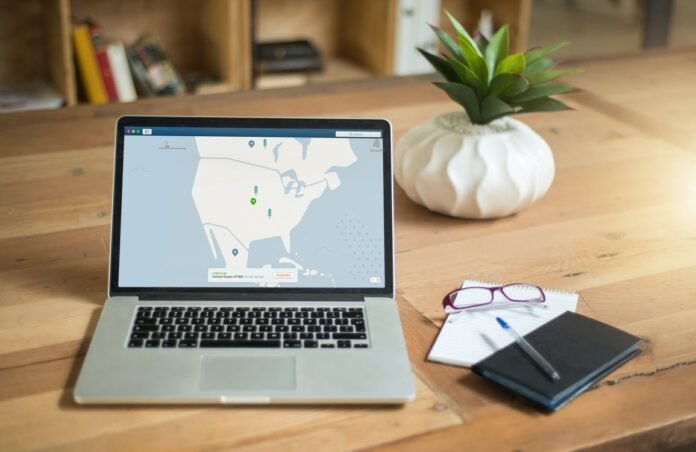VPNs, or virtual private networks, are a staple for those who want to protect their privacy and keep themselves safe while browsing the internet. VPNs can protect confidential information from snoopers, allow access to geographically blocked content, and prevent internet service providers from logging information about the websites you visit.
Whenever you connect a device to the Wi-Fi, you’re assigned a unique IP address. This IP address contains information about your location too. One of the things a VPN does is replace your IP address, which makes it seem like you’re connected from a different location. That is how you’re able to access geographically blocked content.
Moreover, a VPN creates a ‘tunnel’ between your device and the websites you’re trying to visit, preventing your private information from ‘leaking.’
The last two years have revolutionized how we use the internet. In an era plagued with the coronavirus pandemic, remote work has become the new normal. Plus, with growing censorship, cyber-attacks, and regulations threatening internet freedom, it doesn’t hurt to be extra cautious.
Finding the right VPN service can seem daunting, but there’s no need to fret. Just follow our checklist below.
Find the right comparison website
First things first: you need to find the right website to compare competing VPN services. The VPN market has become very competitive over the years. It can be challenging to keep track of all available services.
A good comparison website will allow you to filter competing VPN services based on your needs. It should, ideally, also list the monthly or yearly subscription price.
When it comes to VPNs, there is no such thing as a one-size-fits-all solution. We recommend you to have VPNs compared at the different websites to discover the one that best suits your requirements.
Mind the cost
Not all VPN services are paid. While some are entirely free, others have multiple tiers, including a free one. We’d generally recommend staying away from the completely free ones since there is no guarantee that your private information is a hundred percent safe.
Services that offer free tiers aren’t necessarily bad. The only problem is that they’re usually not feasible in the long term. You won’t have the option to connect multiple devices, and your maximum bandwidth will be limited to a few GBs each month. Suppose you’re planning on using a VPN to watch geographically restricted Netflix content, for instance. In that case, your bandwidth limit won’t be enough.
You won’t have these problems if you opt for a paid service. If you’re positive that you’ll need a VPN service for at least a year, go for a yearly subscription instead of a monthly one. Yearly subscriptions tend to be cheaper than monthly ones in the long run.
Ensure multiple simultaneous connections
Even if you live alone, you may need multiple connections if you own multiple devices. It can be incredibly inconvenient and exhausting to constantly connect and disconnect devices if your VPN service does not provide multiple connections.
If you’d like to provide your family with VPN access, too, you’ll need a service that offers at least ten concurrent connections.
Although the coronavirus pandemic seems to end, most of us are still working (and playing) at home. A service that allows your router to set up a connection is ideal since you won’t connect your devices manually.
Look for the number of servers in each location
VPN servers are an integral part of a VPN service. Your devices must connect to a VPN server to use a VPN service. Each VPN service has many servers scattered across different locations around the globe. That is how you can access geographically blocked content; you connect to one of the servers in a location where the blocked content is available.
If you’re trying to watch shows that are only available in the US, you’ll have little use for servers that are, for instance, in Europe. Within the US, it is not unreasonable to expect hundreds if not thousands of servers. The greater the number of servers in each location, the less likely you’ll run into stability and connection problems.
Don’t overlook the user interface
Most users tend to ignore the user interface when they select a service. We’re here to tell you that the user interface should be near the top of the list when you compare competing services. There are few things as annoying as a connect button that only works after you’ve clicked it ten times.
We’re heading in 2022, and a shoddy user interface is inexcusable at this stage. A good VPN service should have a well-designed user interface that’s easy to use. Desktop and mobile applications should have a consistent layout to avoid frantically searching for a button or a toggle.
A free trial is available for most premium services. Use this opportunity to check out the desktop and mobile apps to ensure the user interface isn’t substandard.
Check for any restrictions
A paid VPN service that doesn’t offer unlimited bandwidth (or at least a couple of TBs each month) is a red flag. Users are often under the impression that only downloads count against their monthly bandwidth, but this isn’t true. Streaming services like YouTube, Netflix, and Twitch use a lot of bandwidth and media-heavy websites like Facebook and Reddit.
Similarly, some services may restrict access to certain types of content. You can avoid any future surprises by visiting each service’s website and glancing over their policies.
Expect 24/7 customer support
It’s rare to run into serious problems if you’ve gone with a good VPN service. However, it’s essential to realize that VPN servers are still computers and VPN applications are still software. Even the best computers and the most reliable software can have hiccups.
A good VPN service should offer 24/7 customer support within its applications. It should also offer alternate communication channels to avoid being stranded if the applications aren’t working.
Ending Thoughts
Interestingly, the internet was created assuming that none of its users would have any malicious intentions. However, this assumption was ultimately flawed. Over the last decade, the internet has undergone massive renovations to make it safer for its users. However, this isn’t enough.
With a VPN service, you can regain your internet freedom and keep yourself secure. You’ll want to make sure that the service you use is priced well and has multiple servers in each location for maximum stability. Connecting multiple devices is vital, and the user interface and customer support should not be overlooked either. Finally, we’d recommend using a comparison website to compare competing services and find the best one.
Also Read: Virtual Private Network (VPN) – Definition, Features,Types and Uses








